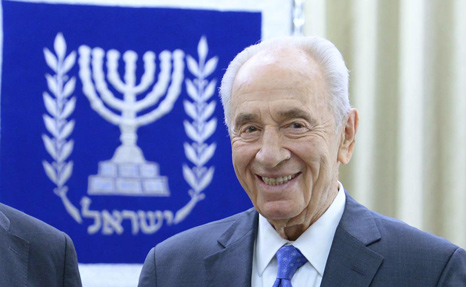Who Needs a President Anyway?
In an op-ed in Makor Rishon, Dr. Ofer Kenig responds to calls to eliminate the institution of the presidency, and explains the value of the presidency in Israel and other parliamentary democracies.

In a few months, the Knesset will choose a new president. As in past elections, some people have been questioning the need for the institution of the presidency and calling for its elimination. This time, a bill has even been submitted to the Knesset on this issue. An examination of the explanatory notes that accompany the proposed legislation shows that it is motivated primarily by two reasons. The first argument cites the waste of public funds that are channeled to an institution that is nothing more than an unnecessary "decorative symbol." The second points to the problems that arise periodically when the president intervenes in political affairs. According to this view, presidential statements on controversial issues can be damaging and may exert inappropriate pressure on decision makers.
While these arguments are worthy of attention, they do not justify abolishing the institution of the presidency. Although it is true that the role of the President of Israel is largely symbolic and ceremonial, if we follow the logic of this argument, we should also cancel the torch-lighting ceremony at Mount Herzl on the eve of Israeli Independence Day and do away with the Israel Prize ceremony at the end of the Independence Day celebrations. These events are also ceremonial and symbolic, but that is the very source of their importance: they contribute to creating a cohesive sense of Israeli identity and a shared civic identity in Israel. The institution of the presidency plays a similar role.
As Israel's number one citizen, the president is a unifying figure who is above day-to-day party politics. In his role as president, he embodies the unity of the nation and serves as a bridge between different groups in society. Although almost all presidents come from the political arena, once they are elected, they are expected to fulfill their duties impartially. Indeed, most presidents have generally refrained from getting involved in politically controversial issues, although there have been exceptional cases when presidents spoke out on issues on the public agenda or acted in a controversial manner. Overall, the presidency manages to serve as a focus of identification for the Israeli public. It is therefore vital to the existence of Israel's regime, especially in this era of sectorial and social tension.
Proof of the importance of the presidency can be found in the latest survey of the Israeli Democracy Index (2013), which reveals the high esteem in which this institution is held among the citizens of Israel. The presidency has the second highest level of public confidence of a variety of government and societal institutions among both the Jewish and Arab public. Moreover, in the past three years, the presidency has had the highest rates of public confidence since such measurements began in 2003.
The existence of a presidency with an essentially ceremonial role is not at all unique to Israel. Like most developed countries, Israel belongs to the family of parliamentary democracies. In such systems, it is very common to have a distinction between a ceremonial leader who acts as head of state (this could be a king or queen, as in Great Britain, Denmark, and Spain, or a president, as in Germany, Italy, and Ireland) and a prime minister, who holds the executive power and is the actual political "boss." All these democracies attach importance to the ceremonial-symbolic role of their heads of state, who serve as unifying figures that transcend party politics and the parties themselves.
It is possible and even desirable to promote public debate on various aspects of the presidency. We can, for example, consider changing the way Israeli presidents are elected; we could require them to be elected by a special majority that would ensure that the winners are chosen by a broad consensus or demand that the requirements for candidacy be loosened in order to allow a broader spectrum of candidates to test their strength. Some people even advocate granting the right to elect the president to all citizens of Israel. Similarly, we can most certainly discuss the possibility of expanding or reducing presidential powers, or even demand that the budget allocated to the activities of the president be returned to more modest proportions. Nonetheless, the need for the institution of the presidency does not have to be doubted for a moment. In a divided and polarized society such as Israel, there is a value in having a unifying personality without any political affiliation who can stand at the head of the state and represent all its citizens.
Dr. Ofer Kenig is a researcher at the Israel Democracy Institute and a senior lecturer at the Ashkelon Academic College.
This article was originally published in Hebrew in the Makor Rishon weekly newspaper on February 14, 2014.
